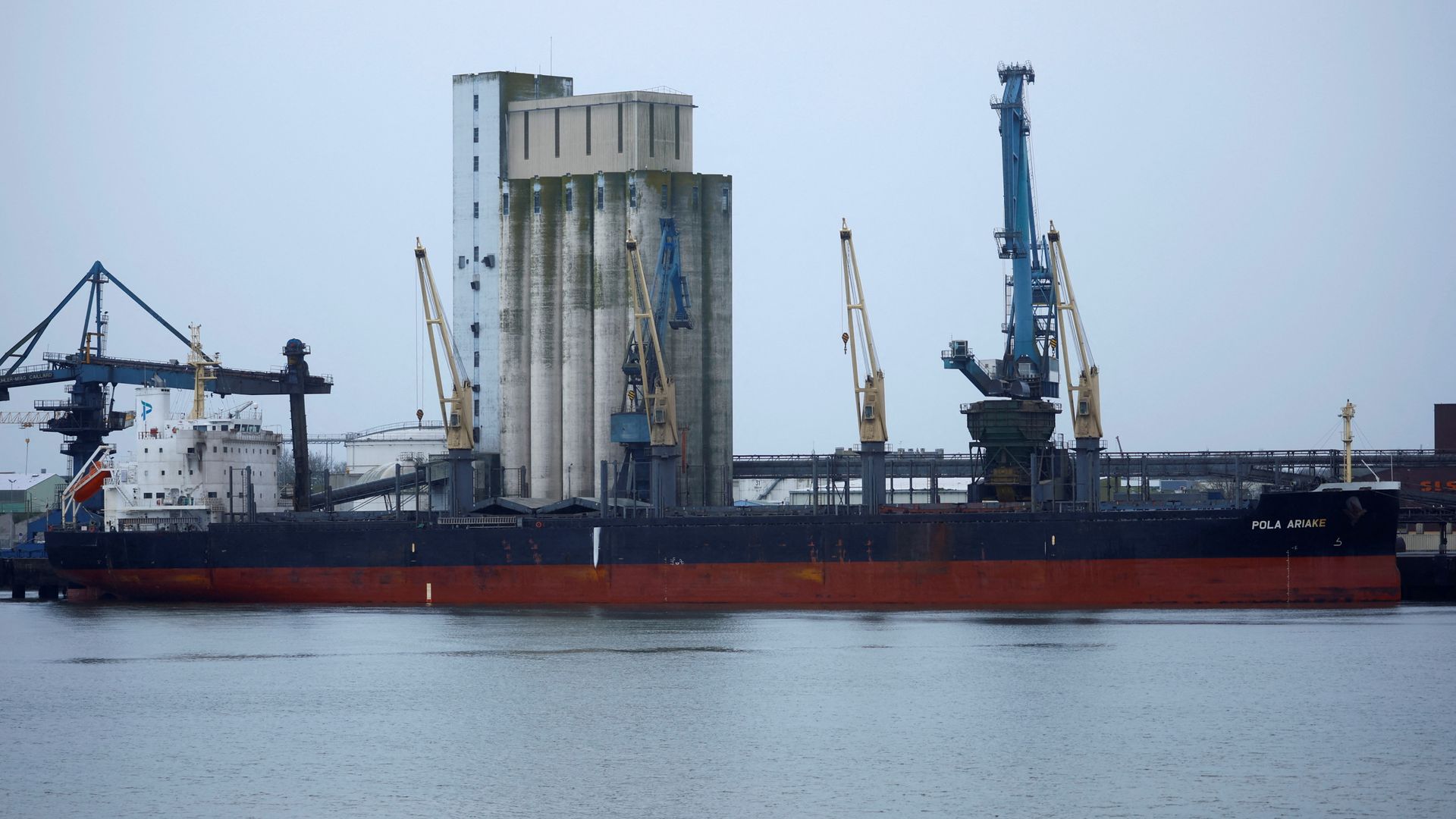Fears have been raised over the robustness of Britain’s trade sanctions against Russia after the main government department enforcing the rules admitted it has no idea how many cases it is investigating.
HM Revenue and Customs (HMRC), which monitors and polices flows of goods in and out of the country, says it had no central record of how many investigations it’s carrying out into Russian sanctions. It also said that while it had issued six fines in relation to sanction-breaking since 2022, it would not name the firms sanctioned or provide any further detail on what they did wrong.
Money latest: Britons need to end ‘obsession with work-life balance’
The disclosures were part of a response to a Freedom of Information (FOI) request from Sky News, as part of its wider investigation into the sanctions regime against Russia.
In recent months we’ve reported on data showing flows of goods, including dual-use items which can be turned into weapons, from the UK into Caucasus and Central Asian states. We’ve shown how luxury British cars are being transported across the border from the Caucasus into Russia. And we’ve shown the contrast between rhetoric and reality on the various rules clamping down on trade in Russian fossil fuels.
But despite the challenges facing the sanctions regime, information on the enforcement of those sanctions is quite scant. The Office of Financial Sanctions Implementation (OFSI) has so far only imposed a single £15,000 fine for breach of financial sanctions – in other words those moving money in or out of Russia or helping sanctioned individuals do so.
HMRC has so far issued six fines in relation to Russian sanctions, but it refused to name any companies or individuals affected by the fines – or to provide any further details on what they were doing to break the rules. And, unlike other organisations, such as OFSI, it has never said how many cases it is working on – giving little sense of the scale of the pipeline of forthcoming action.
Russia is about to sign a pact with Iran – should the West be worried?
Ukraine holds first amputee football tournament for players wounded in Russia war
Volodymyr Zelenskyy offers captured North Korean soldiers for Ukrainians held by Russia
Asked by Sky News to provide such details under FOI legislation, HMRC said: “The number of current investigations which may involve these sanctions, regardless of the eventual outcome, is not centrally recorded.
“To determine how many investigations are within scope of your request would require a manual search of a significant number of records, held by different business areas. Not all investigations reach the level of formal cases being opened, but these investigations are still recorded as compliance activity which would need to be manually reviewed to provide an answer.”
Read more:
How UK firms help to keep Russian gas flowing into Europe
How UK-made cars are getting into Russia despite sanctions
Please use Chrome browser for a more accessible video player
Mark Handley, a partner at law firm Duane Morris, has spent years monitoring the information released on sanctions cases. He said: “If you’re trying to organise an organisation like HMRC in terms of resourcing and all the rest of it, you would think that they might know how many investigations they have ongoing and how to staff all of those. So I’m surprised that they didn’t have that number to hand.”
HMRC also said it would protect the privacy of companies fined for breaking sanctions rules. The FOI response continued: “HMRC do not consider that disclosing the company name would drive compliance, promote voluntary disclosure or be proportionate.”
This is in stark contrast to other countries, notably the US, where companies are routinely named and shamed in an effort to drive compliance.
Leigh Hansson, partner at legal firm Reed Smith and a sanctions expert, said: “The US loves to name and shame, and I think from a US compliance perspective, it’s actually done quite a lot in further enforcing compliance both within the United States and globally.
“Because once you see a company [has] been fined or they’re placed on the specially-designated nationals list, all the other companies in their industry call around going: ‘hey, am I next?’
“And they want to know what it is that the company did – how did they violate sanctions?”
Be the first to get Breaking News
Install the Sky News app for free
“One of the things the United States does in these penalty announcements is they provide background on the things the company did wrong, but these are also the things the company did right… And the information that they publish is quite helpful.”
The absence of such disclosure in the UK means both businesses and the public more widely have less clarity on the rules – which in turn may help explain why the regime has been more leaky than expected, with goods still flowing towards Russian satellite states, despite the fact that sanctions prohibit even indirect flows of goods to Russia.
Follow our channel and never miss an update.
Mr Handley said one consequence of the secrecy from HMRC is that “you’re operating in a vacuum, at the moment. Because the government’s not giving you the information that tells you what kind of conduct gets you to a civil settlement as opposed to a criminal prosecution”.
“So, again, even if you’re keeping the name anonymous, you can help businesses and individuals behave better and properly by giving more information,” he added.





